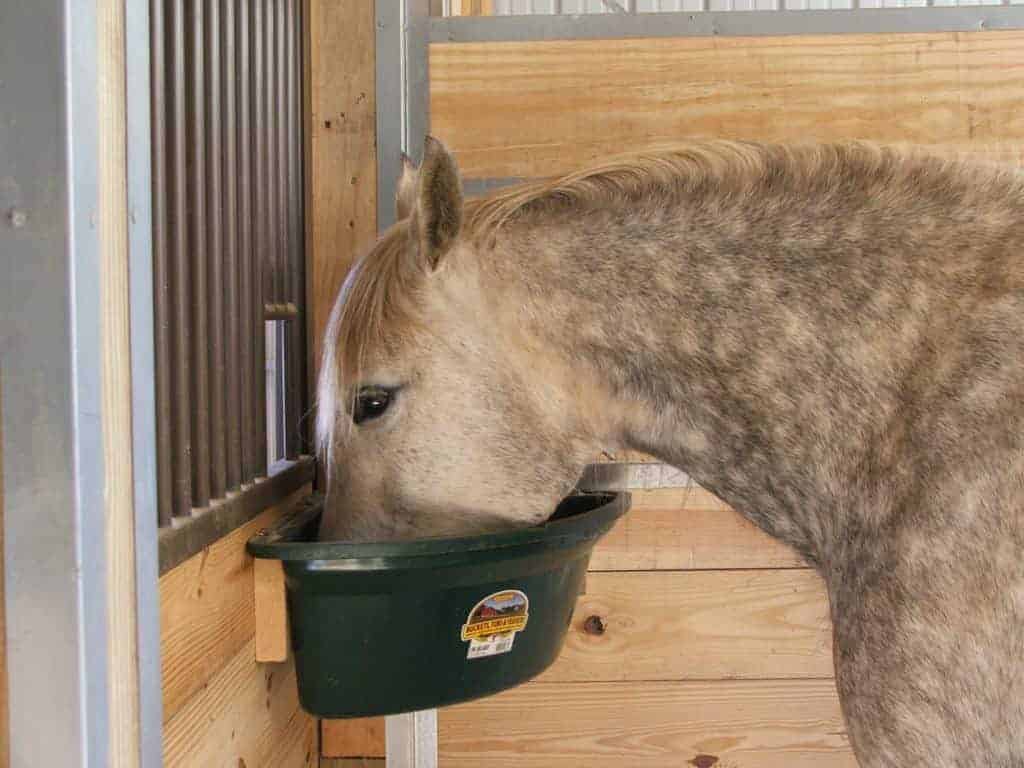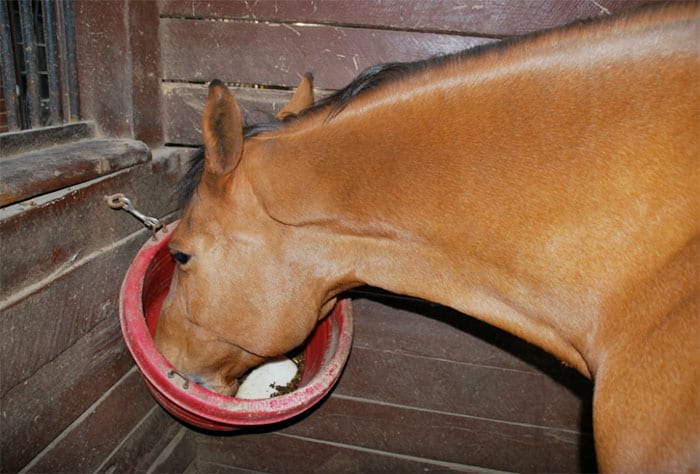
Could You Be Missing the Signs of Gastric Ulcers in Horses?
Behavior and performance changes that could be associated with gastric ulcers in horses should prompt further veterinary investigation.

Behavior and performance changes that could be associated with gastric ulcers in horses should prompt further veterinary investigation.

Hormone imbalances wreak havoc on horses and their hooves. Here’s advice to help manage equine metabolic syndrome.

Veterinarians could soon determine which horses are at risk of certain neurologic diseases through a simple urine test that reveals how a horse breaks down vitamin E.

Pituitary pars intermedia dysfunction (PPID, or equine Cushing’s disease) is caused by an enlargement of the pituitary gland’s middle lobe (the pars intermedia), which results in an overproduction of hormones that regulate bodily functions. Learn more about this disease in our slideshow.

Colitis is inflammation of the large or small colon that can lead to diarrhea, proliferation of harmful bacteria, and even death in severe cases.

Horses might chew trees for a variety of reasons, such as boredom or nutritional deficiency. Learn about the benefits and risks, and how to protect your horses and your trees.

Learn about feed allergies in horses—including allergy testing—and what you can do to make sure your allergic horse gets the nutrition he needs.

Scottish researchers found a half barley straw and half hay ration helped ponies lose weight.

Chokes are common equine emergencies with potentially serious consequences. Here’s what you need to know.

Researchers say progressive changes in diets lead to healthier microbiomes and fewer digestive issues, such as diarrhea and colic.

Showing, training, traveling, or even lifestyle changes can put your horse under stress that risks his health. The right nutritional choices can support his immune system, GI tract, and overall well-being. Learn how.

Vitiligo results in depigmentation of a horse’s skin and might be related to stress or a nutritional deficiency. Research into the condition is limited. Here’s what we know.

If you live at northern latitudes, you might lack vitamin D. But what about your horse?

British researchers reviewed more than 150 equine microbiome studies. From colic to laminitis to pregnancy, here’s what they found.

Do you have a cinchy horse? Follow this step-by-step advice to modify his behavior.

Reduced performance, including a shorter stride length, is likely a consequence of pain caused by equine gastric ulcers.
Stay on top of the most recent Horse Health news with
"*" indicates required fields